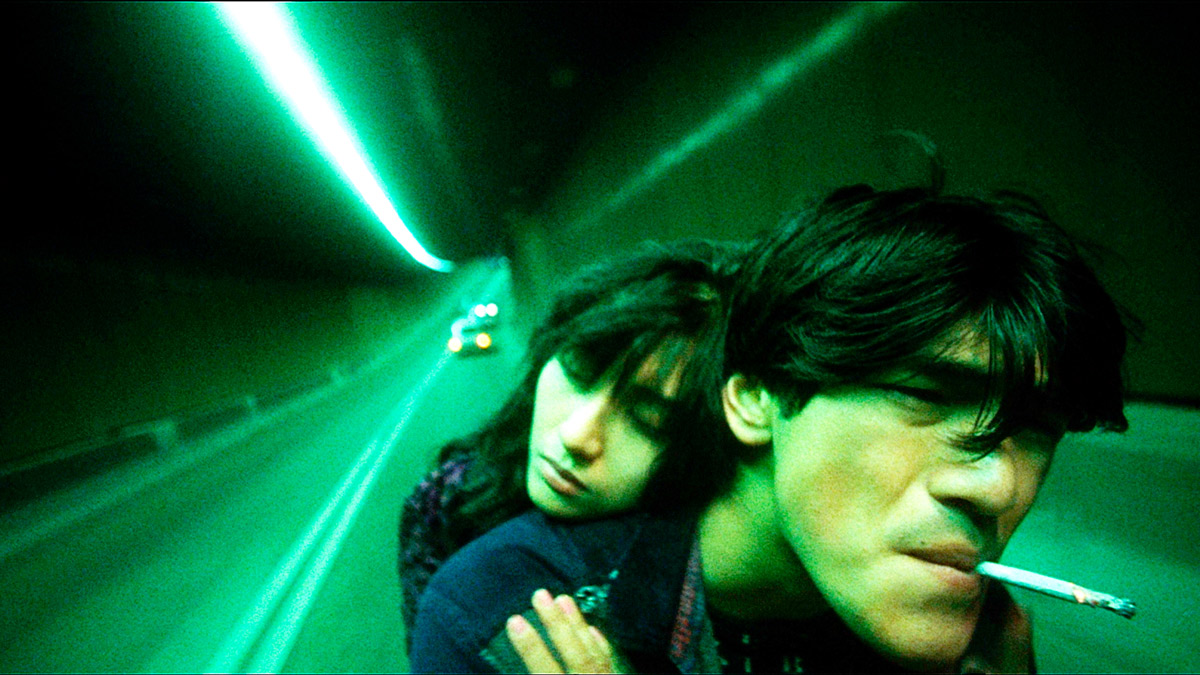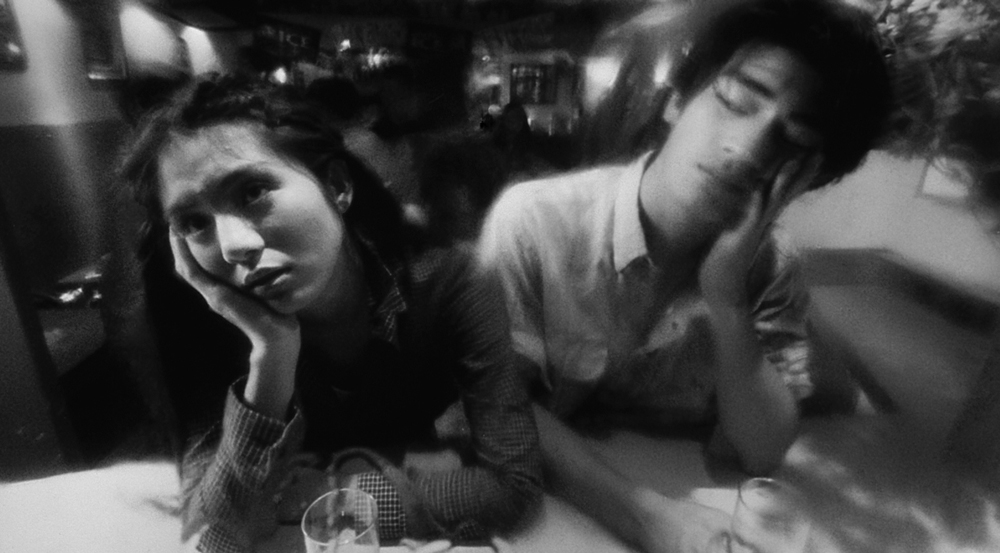
©1995, 2008 Block 2 Pictures Inc. All Rights Reserved.
``Fallen Angels'' Wong Kar-wai's depiction of sex and death during the transition period, ``Chungking Express'' sister edition
2022.04.14
“Chungking Express” that are reversed and connected
The reversal from `` The Chungking Express '' in ` `Fallen Angels '' is almost self-imitating. For example, when a female agent cleans the killer's room, takes the trash home, and imagines his life from the trash, Faye sneaks into the house of police officer 663 and decides to "live together" without the other party knowing. It overlaps with the act of doing. The killer meets a blonde woman and spends the night with her, just like Detective Mo and the drug dealer (the dealer was also blonde), although the outcome is different.
Also, Mo in ``Fallen Angels'' uses other people's shops without permission to do business, much like Fei in `` Chungking Express .'' In Tara Tara, a heartbroken woman clings to her phone, reminiscent of Mo from `` Chungking Express .'' The Hong Kong that Kar-wai depicts is alive with people who are so swayed by love that they lose the ability to feel close to their partner, or who live with values that cannot be considered by common sense.
“Chungking Express” preview
The reversals that were decisively aimed at are the two people that Takeshi Kinjo embodies. Kinjo played the role of Mo, a talkative and multilingual detective in `` Chungking Express ,'' and in ``Fallen Angels,'' he played the role of Mo, a trespasser (criminal) who cannot speak well - a different person with the same name. - played. The former character, Mo, eats a lot of pineapple cans that are close to their expiration date, while the latter's Moe became deaf as a result of eating expired pineapple cans as a child. What's more, both Mo's are looking forward to meeting a "stranger." Mo, the detective, suspects his future lover, and Mo, the intruder, suspects his future best friend is in the crowds of this city.
Kar-wai admits that there could be a reversal beyond the two Mos played by Kinjo. For example, the drug dealer in `` Chungking Express '' and the assassin in ``Fallen Angels'' are both members of the underworld, frequenting bars and easily killing people when necessary. There is also a scene towards the end of the film where Mo from ``Fallen Angels'' sneaks into the delicatessen shop ``Midnight Express'' and works while dancing like Fei from `` Chungking Express .'' Kar-wai says that everyone who appears in the two films is two sides of the same coin, but the point is that certain characters do not correspond exactly like mirrors. In `` Chungking Express ,'' multiple characteristics seen in one person are assigned to different people in ``Fallen Angels.''

“Fallen Angels” ©1995, 2008 Block 2 Pictures Inc. All Rights Reserved.
However, the fact that they are all two sides of the same coin means that they cannot all be unique characters. In `` Chungking Express '' and ``Fallen Angels,'' where the cities themselves are the protagonists, the people who live there are sadly interchangeable. In `` Chungking Express '', this is summarized in the episode of detective Mo, who, while devouring his ex-lover's favorite food, a mass-produced pineapple can, realizes that to him, there was no difference between him and the canned food. .
These values are carried over into ``Fallen Angels,'' where the killer apparently drinks a large amount of Heineken in his room (there is a scene where the agent retrieves the can), and the killer and the blonde woman. It is especially symbolic that the place where they meet is McDonald's, a representative fast food restaurant. It seems that the two have met in the past, but the man does not remember the woman. After spending the night together, the woman falls in love with the killer, but in the end, the man says goodbye to her. When the woman cries, "Don't forget my face," the killer kisses her and says, "I won't forget," and leaves, but he has no intention of doing so. It was as if it had been decided from the moment they met that their relationship would be a temporary one for both of them, and that the man would easily consume this romance.

